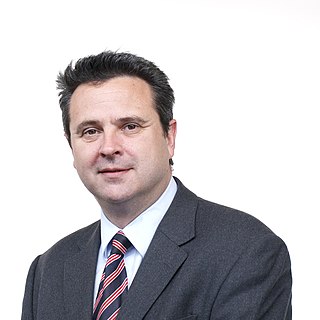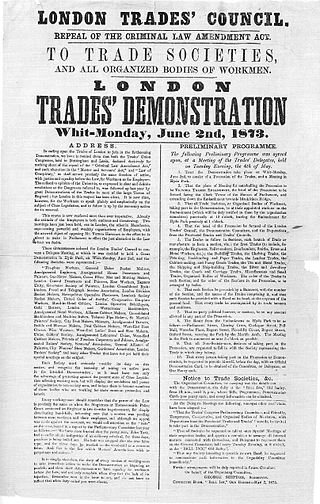Related Research Articles

The United Kingdom is a constitutional monarchy where executive power is delegated by legislation and social conventions to a unitary parliamentary democracy. From this a hereditary monarch, currently King Charles III, serves as head of state while the Prime Minister of the United Kingdom, currently Sir Keir Starmer since 2024, serves as the elected head of government.

Albert Victor Alexander, 1st Earl Alexander of Hillsborough, was a British Labour and Co-operative politician. He was three times First Lord of the Admiralty, including during the Second World War, and then Minister of Defence under Clement Attlee.

Herbert William Bowden, Baron Aylestone, was a British Labour politician.
The Miners' Federation of Great Britain (MFGB) was established after a meeting of local mining trade unions in Newport, Wales in 1888. The federation was formed to represent and co-ordinate the affairs of local and regional miners' unions in England, Scotland and Wales whose associations remained largely autonomous. At its peak, the federation represented nearly one million workers. It was reorganised into the National Union of Mineworkers in 1945.
The London Co-operative Society (LCS) was a consumer co-operative society in the United Kingdom.

Huw Lewis is a Welsh Labour Co-operative politician who served as Minister for Education and Skills from 2013 to 2016. Born in Merthyr Tydfil, Glamorgan, Lewis represented the Merthyr Tydfil and Rhymney constituency in the National Assembly for Wales from 1999 to 2016.
The National Association of Operative Plasterers (NAOP) was a trade union representing plasterers in the United Kingdom.
Herbert Delauney Hughes, known as Billy Hughes, was a British adult educationist and Labour Party politician. He was a member of parliament (MP) from 1945 to 1950 and principal of Ruskin College from 1950 to 1979.
William Henry Mainwaring was a Welsh coal miner, lecturer and trade unionist, who became a long-serving Labour Party Member of Parliament. Both as a trade unionist and a politician he struggled, largely successfully to counter Communist influence. He was said to have spoken "with passion and fire on behalf of his fellow miners".

The London Trades Council was an early labour organisation, uniting London's trade unionists. Its modern successor organisation is the Greater London Association of Trades (Union) Councils

The Electrical Trades Union (ETU) was a trade union representing electricians in the United Kingdom, much of its membership consisting of wiring fitters and telephone engineers.
James Rowan was a British trade union leader.

Joseph Cross (1859–1925) was a British trade unionist.
William Thomasson was a British trade unionist.
Harold Chorlton CBE was a British trade union leader and politician. He served as the council leader in Rochdale, and also as a leading figure in the Lancashire cotton trade unions.
Edward Jones was a Welsh trade union leader.
Charles Richard Flynn was a British trade unionist and politician.
Frank Lawrence Combes was a British politician and trade unionist, who served on the London County Council.
Thomas H. Otley was a British trade union leader.
F. E. White was a British trade unionist, political activist, and two-time candidate for the House of Commons of the United Kingdom.